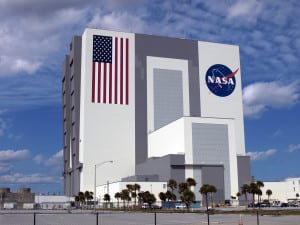Latest News
[Via Satellite 07-14-2016] Procurement bureaucracy and Small Business Administration (SBA) regulations are discouraging small businesses from contracting with NASA, according to industry executives. Carol Craig, president and CEO of Craig Technologies in Cape Canaveral, Florida, told a Congressional House of Representatives panel Tuesday, July 12 that slipping timelines, unpredictable budgets, lots of paperwork and certification, and the lack of milestone payments are making smaller businesses look to other federal agencies for business. Craig Technologies employs about 450 people with about $45 million in revenues, a company spokeswoman said Tuesday.
Craig also said NASA makes life difficult for these smaller businesses by not accommodating other customers. She said NASA might slip a timeline but not be flexible when another agency’s delivery deadline coincides with the civil space agency’s new delivery date.
“Pretty soon, no one is going to do business with NASA at the expense of other customers,” Craig told the House Small Business agriculture, energy and trade subcommittee.
George Davis, president of Emergent Space Technologies in Greenbelt, Maryland, testified that the Department of Defense (DoD) and Intelligence Community (IC) programs have become much more attractive to his company due to their stable and predictable budgets. The growth of importance of Space Situational Awareness (SSA) to DOD has also played a factor, he said.
Davis also said small businesses face an uneven playing field to compete for NASA contracts due to SBA regulations that bunch small businesses like Emergent with companies that are often two-to-four times larger. He said the classification for engineering services, which his company primarily pursues, is set at $38.5 million in the aerospace exception, which he called roughly four-times larger than Emergent. Since these aerospace engineering companies can be four times larger, Davis believes they can have four-times the advantage to win contracts.
This, he said, puts small businesses like Emergent, which have roughly 60 employees, at a big disadvantage. Larger companies have more available money to spend on the paperwork and consultants necessary to submit successful proposals — and risk losing if they lose the competition. Also, their size allows them to lower their rates, making them more competitive in cost-driven competitions.
Davis proposed lawmakers spur small business contracting with NASA by reforming the North American Industry Classification System (NAICS) that specifies how large businesses can still qualify as a small business for certain government contracts. Davis said some small business set-aside classifications are limited to companies with 1,000 or 1,250 employees, even though he said 99 percent of United States businesses have less than 100 people.
Davis proposed creating a smaller code that is limited to companies with 100 employees or perhaps $10 million to $15 million in revenue. This, he said, would level a playing field for smaller companies that he feels often face unfair odds. He also called on NASA to expand its use of small business set-asides under smaller codes for engineering services and custom computer programming services.
Subcommittee Chairman Carlos Curbelo, R-Fla., said in his opening statement that there are more than 100,000 fewer small firms registered to do business with the federal government than there were in 2012. He added that starting in 2008, more businesses ended than started. Curbelo and Ranking Member Grace Meng, D-N.Y., did not respond to requests for comment by press time.
This story was originally published on Defense Daily, a Via Satellite sister publication covering the global defense market intelligence in land, sea, air, and space initiatives.
Get the latest Via Satellite news!
Subscribe Now